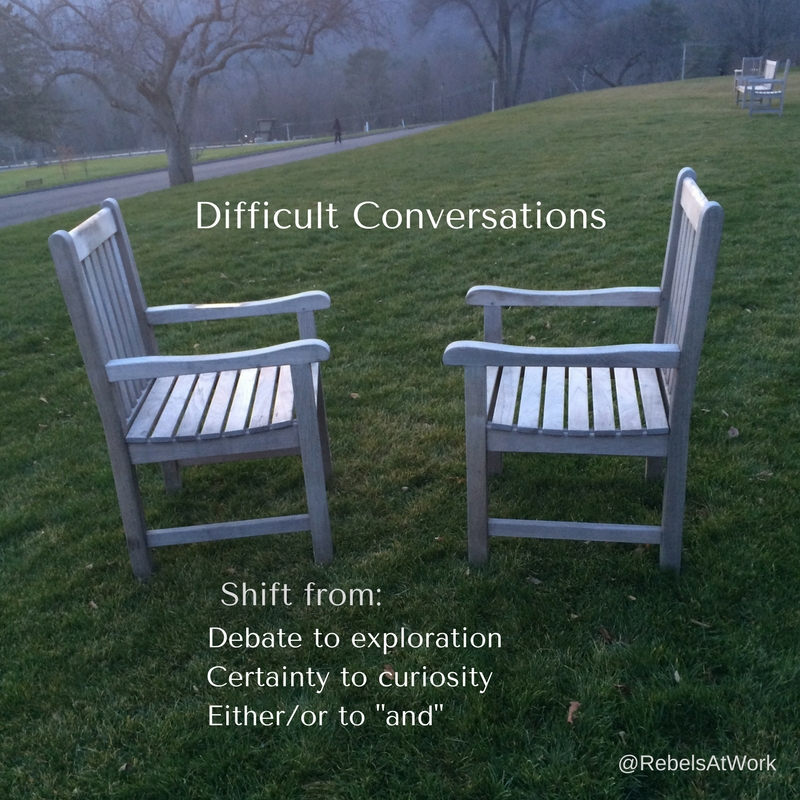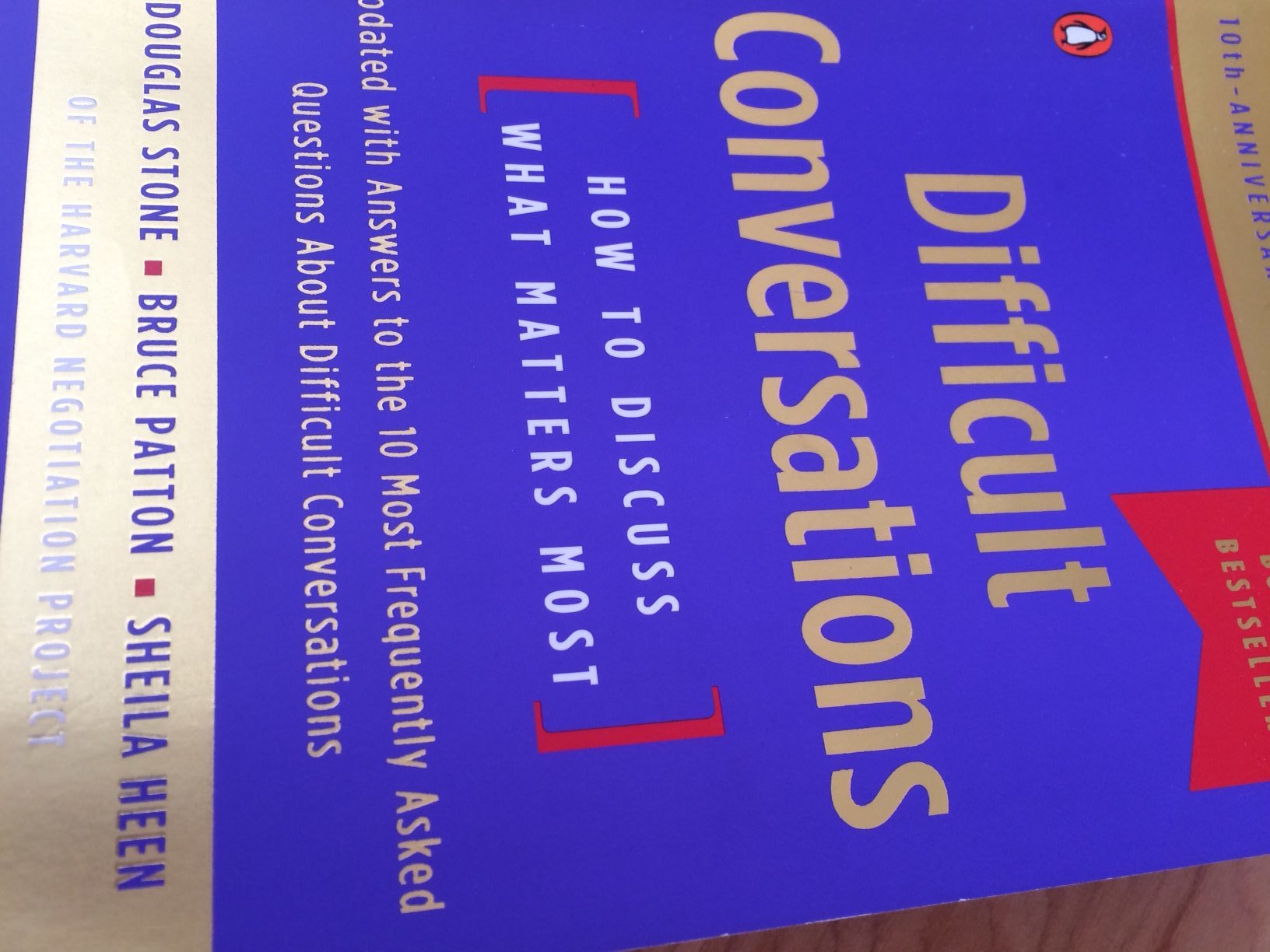 Everywhere Carmen and I speak people tell us that one of their top challenges is having difficult conversations.
Everywhere Carmen and I speak people tell us that one of their top challenges is having difficult conversations.
One of the best sources for learning to have difficult conversations is the Harvard Negotiation Project and the book from faculty members Doug Stone, Sheila Heen and Bruce Patton, aptly titled "Difficult Conversations: How to Discuss What Matters Most."
My biggest takeaway from the book is that we can't change someone's mind in a conversation. No matter how skilled you think you may be. Not going to happen.
The purpose of a conversation is to create mutual understanding of an issue so that you can both figure out the best way forward. In other words, the goal is to genuinely figure out what's important to the other person and express what's important to us. That's how shifts and change begin to happen.
I encourage you to read --no, devour and highlight -- this book. It will not only make you more effective at work, your personal relationships are likely improve, too.
Until then, here are my book highlights to get you thinking in some new ways.
CONTEXT
Biggest mistakes
- Blaming: it inhibits our ability to learn what’s really causing the problem and to do anything meaningful to correct it.
- Believing it’s their fault: when things go wrong in relationships, everyone has contributed in some important way.
- Assuming we know the intentions and feelings of others.
- Avoiding the problem is one of the biggest contributors to a problem.
- Not preparing, rushing, catching someone off guard.
- Not acknowledging feelings.
Important realities
- Difficult conversations are almost never about getting the facts right. They are about conflicting perceptions, interpretations and values.
- They are not about what is true; they are about what is important.
- What happened is the result of what BOTH people did – or failed to do.
- Difficult conversations don’t just involve feelings; they are at their core about
- The two most difficult and important things are expressing feelings and listening. (And our ability to listen increases once we’ve expressed our feelings.)
- When a conversation feels difficult it’s because something beyond the substance of the conversation is at stake for YOU.
- People almost never change without first feeling understood.
- Don’t share your conclusions as “the” truth; explain what’s behind your thinking.
- When conversation goes off track reframe it to focus on mutual goals and issue at hand.
HAVING THE CONVERSATION
Prepare
- What do you hope to accomplish? What’s the best outcome?
- Is a conversation the best way to address the issue? (Sometimes what’s difficult has a lot more to do with what’s going on inside of you than what’s going on between you and the other person. So a conversation won't actually help. You've got to do some inner work.)
- Plan a time to talk. Don’t do it on the fly.
How to start
- Reduce the other person’s anxiety! Don't put them on the defense.
- Describe the issue in a way that rings true for both sides and is free of judgment, e.g., We seem to have different assumptions and preferences for how to accomplish work we both feel is important. I wonder whether it’s possible for us to look at the best approaches in view of what we want to achieve.
Explore: their views and yours
- Listen and explore their perspectives, asking questions, acknowledging feelings, paraphrasing so the person knows you’ve heard them.
- Express your views and feelings: what you see, why you see it that way, how you feel and who you are. Begin with the heart of the matter for you, e.g., “What is important to me is…”
Problem solve and figure out best way forward
- Figure out the best way forward that satisfies both of your needs.
- Talk about how to keep communication open as you move forward
GOOD QUESTIONS TO USE
- What did we each do -- or not do -- to get ourselves into this mess?
- Can you say a little more about how you see things?
- What’s most important to you about this situation?
- What information might you have that I don’t?
- How do you see it differently?
- Were you reacting to something I did?
- How are you feeling about all of this?
- What would it mean to you if that happened?
- How do you see the situation differently?
- Help me understand how you would feel and how you might think about the situation if you were in my shoes. What would you do and why?
